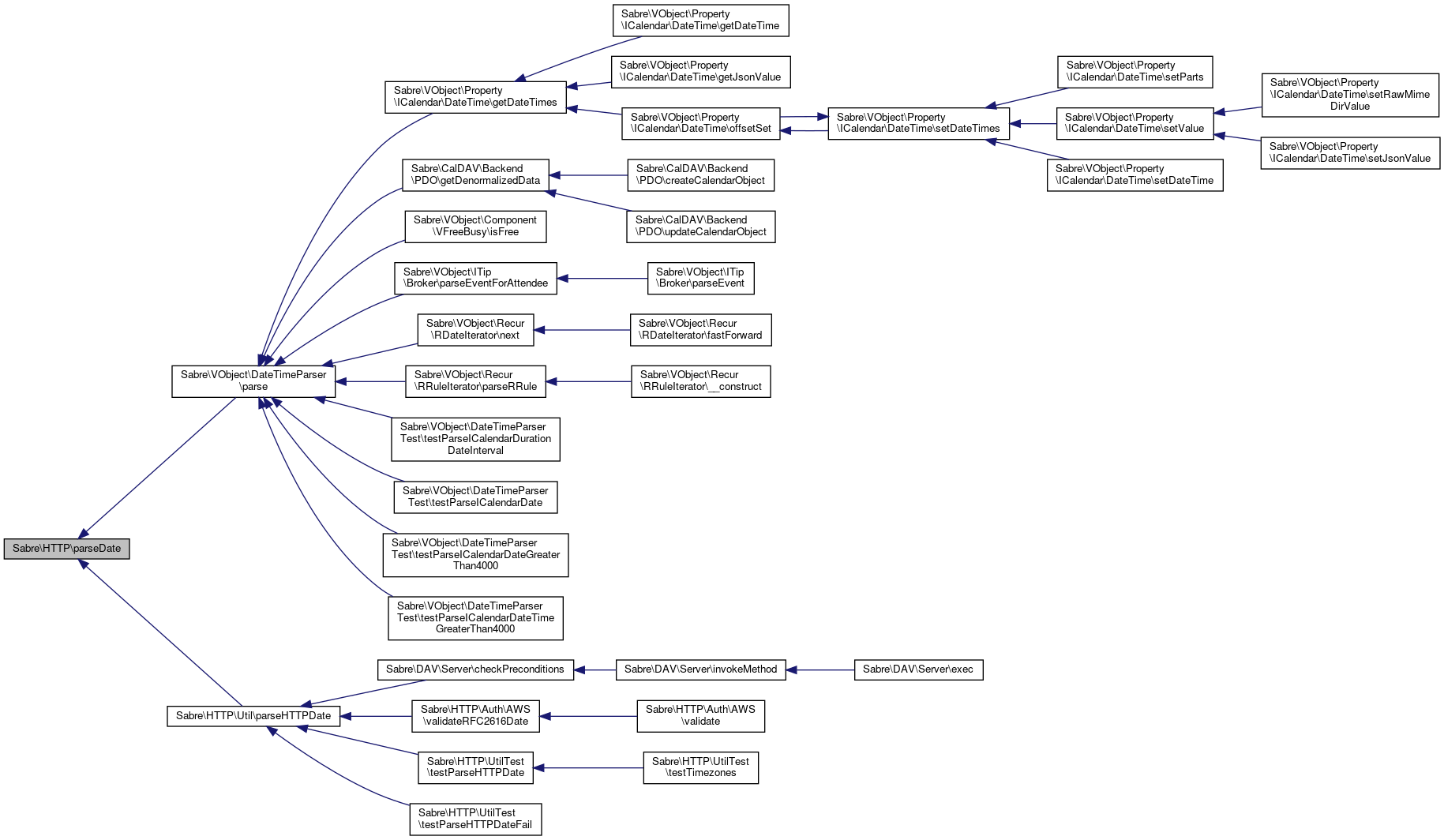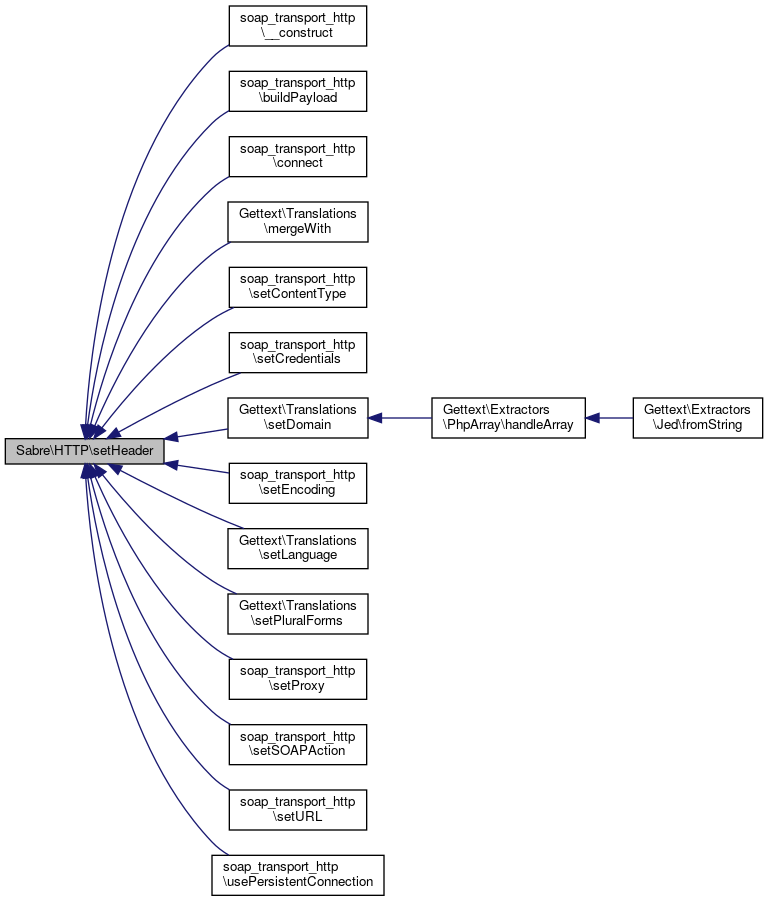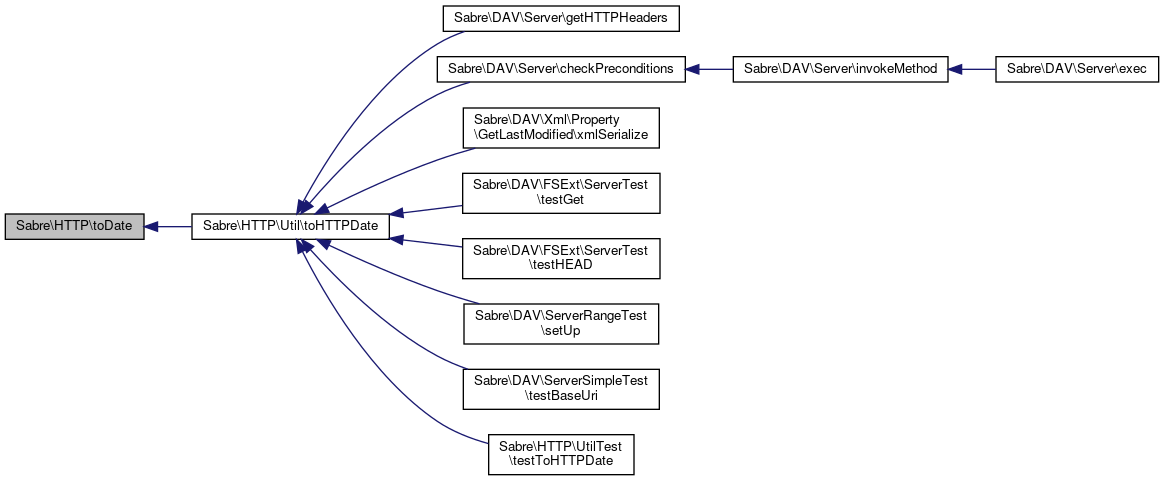Namespaces | |
| namespace | Auth |
Data Structures | |
| class | Client |
| A rudimentary HTTP client. More... | |
| class | ClientException |
| This exception may be emitted by the HTTP\Client class, in case there was a problem emitting the request. More... | |
| class | ClientHttpException |
| This exception represents a HTTP error coming from the Client. More... | |
| class | ClientMock |
| class | ClientTest |
| class | FunctionsTest |
| interface | HttpException |
| An exception representing a HTTP error. More... | |
| class | Message |
| This is the abstract base class for both the Request and Response objects. More... | |
| class | MessageDecoratorTest |
| interface | MessageInterface |
| The MessageInterface is the base interface that's used by both the RequestInterface and ResponseInterface. More... | |
| class | MessageMock |
| class | MessageTest |
| class | Request |
| The Request class represents a single HTTP request. More... | |
| class | RequestDecorator |
| Request Decorator. More... | |
| class | RequestDecoratorTest |
| interface | RequestInterface |
| The RequestInterface represents a HTTP request. More... | |
| class | RequestTest |
| class | Response |
| This class represents a single HTTP response. More... | |
| class | ResponseDecorator |
| Response Decorator. More... | |
| class | ResponseDecoratorTest |
| interface | ResponseInterface |
| This interface represents a HTTP response. More... | |
| class | ResponseMock |
| HTTP Response Mock object. More... | |
| class | ResponseTest |
| class | Sapi |
| PHP SAPI. More... | |
| class | SapiMock |
| HTTP Response Mock object. More... | |
| class | SapiTest |
| class | URLUtil |
| URL utility class. More... | |
| class | URLUtilTest |
| class | Util |
| HTTP utility methods. More... | |
| class | UtilTest |
| class | Version |
| This class contains the version number for the HTTP package. More... | |
Functions | |
| parseDate ($dateString) | |
| A collection of useful helpers for parsing or generating various HTTP headers. More... | |
| toDate (DateTime $dateTime) | |
| Transforms a DateTime object to a valid HTTP/1.1 Date header value. More... | |
| negotiateContentType ($acceptHeaderValue, array $availableOptions) | |
| This function can be used to aid with content negotiation. More... | |
| parsePrefer ($input) | |
| Parses the Prefer header, as defined in RFC7240. More... | |
| getHeaderValues ($values, $values2=null) | |
| This method splits up headers into all their individual values. More... | |
| parseMimeType ($str) | |
| Parses a mime-type and splits it into: More... | |
| encodePath ($path) | |
| Encodes the path of a url. More... | |
| encodePathSegment ($pathSegment) | |
| Encodes a 1 segment of a path. More... | |
| decodePath ($path) | |
| Decodes a url-encoded path. More... | |
| decodePathSegment ($path) | |
| Decodes a url-encoded path segment. More... | |
| getBodyAsStream () | |
| Returns the body as a readable stream resource. More... | |
| getBodyAsString () | |
| Returns the body as a string. More... | |
| getBody () | |
| Returns the message body, as it's internal representation. More... | |
| setBody ($body) | |
| Updates the body resource with a new stream. More... | |
| getHeaders () | |
| Returns all the HTTP headers as an array. More... | |
| hasHeader ($name) | |
| Will return true or false, depending on if a HTTP header exists. More... | |
| getHeader ($name) | |
| Returns a specific HTTP header, based on it's name. More... | |
| getHeaderAsArray ($name) | |
| Returns a HTTP header as an array. More... | |
| setHeader ($name, $value) | |
| Updates a HTTP header. More... | |
| setHeaders (array $headers) | |
| Sets a new set of HTTP headers. More... | |
| addHeader ($name, $value) | |
| Adds a HTTP header. More... | |
| addHeaders (array $headers) | |
| Adds a new set of HTTP headers. More... | |
| removeHeader ($name) | |
| Removes a HTTP header. More... | |
| setHttpVersion ($version) | |
| Sets the HTTP version. More... | |
| getHttpVersion () | |
| Returns the HTTP version. More... | |
Variables | |
| trait | MessageDecoratorTrait |
| This trait contains a bunch of methods, shared by both the RequestDecorator and the ResponseDecorator. More... | |
Function Documentation
◆ addHeader()
| Sabre\HTTP\addHeader | ( | $name, | |
| $value | |||
| ) |
Adds a HTTP header.
This method will not overwrite any existing HTTP header, but instead add another value. Individual values can be retrieved with getHeadersAsArray.
- Parameters
-
string $name string $value
- Returns
- void
Definition at line 189 of file MessageDecoratorTrait.php.
References $name.
◆ addHeaders()
| Sabre\HTTP\addHeaders | ( | array | $headers | ) |
Adds a new set of HTTP headers.
Any existing headers will not be overwritten.
- Parameters
-
array $headers
- Returns
- void
Definition at line 203 of file MessageDecoratorTrait.php.
◆ decodePath()
| Sabre\HTTP\decodePath | ( | $path | ) |
Decodes a url-encoded path.
- Parameters
-
string $path
- Returns
- string
Definition at line 419 of file functions.php.
References $path, and Sabre\HTTP\decodePathSegment().
 Here is the call graph for this function:
Here is the call graph for this function:◆ decodePathSegment()
| Sabre\HTTP\decodePathSegment | ( | $path | ) |
Decodes a url-encoded path segment.
- Parameters
-
string $path
- Returns
- string
Definition at line 431 of file functions.php.
References $path.
Referenced by Sabre\HTTP\decodePath().
 Here is the caller graph for this function:
Here is the caller graph for this function:◆ encodePath()
| Sabre\HTTP\encodePath | ( | $path | ) |
Encodes the path of a url.
slashes (/) are treated as path-separators.
- Parameters
-
string $path
- Returns
- string
Definition at line 386 of file functions.php.
References $path.
Referenced by Sabre\DAV\Xml\Property\LocalHref\__construct(), Sabre\CalDAV\Backend\PDO\getInvites(), and Sabre\DAV\Xml\Element\Response\xmlSerialize().
 Here is the caller graph for this function:
Here is the caller graph for this function:◆ encodePathSegment()
| Sabre\HTTP\encodePathSegment | ( | $pathSegment | ) |
Encodes a 1 segment of a path.
Slashes are considered part of the name, and are encoded as %2f
- Parameters
-
string $pathSegment
- Returns
- string
Definition at line 404 of file functions.php.
◆ getBody()
| Sabre\HTTP\getBody | ( | ) |
Returns the message body, as it's internal representation.
This could be either a string or a stream.
- Returns
- resource|string
Definition at line 62 of file MessageDecoratorTrait.php.
◆ getBodyAsStream()
| Sabre\HTTP\getBodyAsStream | ( | ) |
Returns the body as a readable stream resource.
Note that the stream may not be rewindable, and therefore may only be read once.
- Returns
- resource
Definition at line 35 of file MessageDecoratorTrait.php.
◆ getBodyAsString()
| Sabre\HTTP\getBodyAsString | ( | ) |
Returns the body as a string.
Note that because the underlying data may be based on a stream, this method could only work correctly the first time.
- Returns
- string
Definition at line 49 of file MessageDecoratorTrait.php.
Referenced by Sabre\HTTP\ClientTest\testParseCurlResult().
 Here is the caller graph for this function:
Here is the caller graph for this function:◆ getHeader()
| Sabre\HTTP\getHeader | ( | $name | ) |
Returns a specific HTTP header, based on it's name.
The name must be treated as case-insensitive. If the header does not exist, this method must return null.
If a header appeared more than once in a HTTP request, this method will concatenate all the values with a comma.
Note that this not make sense for all headers. Some, such as Set-Cookie cannot be logically combined with a comma. In those cases you should use getHeaderAsArray().
- Parameters
-
string $name
- Returns
- string|null
Definition at line 121 of file MessageDecoratorTrait.php.
References $name.
◆ getHeaderAsArray()
| Sabre\HTTP\getHeaderAsArray | ( | $name | ) |
Returns a HTTP header as an array.
For every time the HTTP header appeared in the request or response, an item will appear in the array.
If the header did not exists, this method will return an empty array.
- Parameters
-
string $name
- Returns
- string[]
Definition at line 138 of file MessageDecoratorTrait.php.
References $name.
◆ getHeaders()
| Sabre\HTTP\getHeaders | ( | ) |
Returns all the HTTP headers as an array.
Every header is returned as an array, with one or more values.
- Returns
- array
Definition at line 87 of file MessageDecoratorTrait.php.
Referenced by Sabre\HTTP\ClientTest\testParseCurlResult().
 Here is the caller graph for this function:
Here is the caller graph for this function:◆ getHeaderValues()
| Sabre\HTTP\getHeaderValues | ( | $values, | |
$values2 = null |
|||
| ) |
This method splits up headers into all their individual values.
A HTTP header may have more than one header, such as this: Cache-Control: private, no-store
Header values are always split with a comma.
You can pass either a string, or an array. The resulting value is always an array with each spliced value.
If the second headers argument is set, this value will simply be merged in. This makes it quicker to merge an old list of values with a new set.
- Parameters
-
string | string[] $values string | string[] $values2
- Returns
- string[]
Definition at line 301 of file functions.php.
References $result, and $values.
Referenced by Sabre\HTTP\parsePrefer(), and Sabre\HTTP\FunctionsTest\testGetHeaderValues().
 Here is the caller graph for this function:
Here is the caller graph for this function:◆ getHttpVersion()
| Sabre\HTTP\getHttpVersion | ( | ) |
Returns the HTTP version.
- Returns
- string
Definition at line 245 of file MessageDecoratorTrait.php.
◆ hasHeader()
| Sabre\HTTP\hasHeader | ( | $name | ) |
Will return true or false, depending on if a HTTP header exists.
- Parameters
-
string $name
- Returns
- bool
Definition at line 99 of file MessageDecoratorTrait.php.
References $name.
◆ negotiateContentType()
| Sabre\HTTP\negotiateContentType | ( | $acceptHeaderValue, | |
| array | $availableOptions | ||
| ) |
This function can be used to aid with content negotiation.
It takes 2 arguments, the $acceptHeaderValue, which usually comes from an Accept header, and $availableOptions, which contains an array of items that the server can support.
The result of this function will be the 'best possible option'. If no best possible option could be found, null is returned.
When it's null you can according to the spec either return a default, or you can choose to emit 406 Not Acceptable.
The method also accepts sending 'null' for the $acceptHeaderValue, implying that no accept header was sent.
- Parameters
-
string | null $acceptHeaderValue array $availableOptions
- Returns
- string|null
Definition at line 107 of file functions.php.
References PHPMailer\PHPMailer\$options.
◆ parseDate()
| Sabre\HTTP\parseDate | ( | $dateString | ) |
A collection of useful helpers for parsing or generating various HTTP headers.
- Copyright
- Copyright (C) fruux GmbH (https://fruux.com/)
This method returns false if the date is invalid.
The following formats are supported: Sun, 06 Nov 1994 08:49:37 GMT ; IMF-fixdate Sunday, 06-Nov-94 08:49:37 GMT ; obsolete RFC 850 format Sun Nov 6 08:49:37 1994 ; ANSI C's asctime() format
See: http://tools.ietf.org/html/rfc7231#section-7.1.1.1
- Parameters
-
string $dateString
- Returns
- bool|DateTime
Definition at line 32 of file functions.php.
References $time.
Referenced by Sabre\HTTP\Util\parseHTTPDate().
 Here is the caller graph for this function:
Here is the caller graph for this function:◆ parseMimeType()
| Sabre\HTTP\parseMimeType | ( | $str | ) |
Parses a mime-type and splits it into:
- type
- subtype
- quality
- parameters
- Parameters
-
string $str
- Returns
- array
Definition at line 327 of file functions.php.
References $type.
◆ parsePrefer()
| Sabre\HTTP\parsePrefer | ( | $input | ) |
Parses the Prefer header, as defined in RFC7240.
Input can be given as a single header value (string) or multiple headers (array of string).
This method will return a key->value array with the various Prefer parameters.
Prefer: return=minimal will result in:
[ 'return' => 'minimal' ]
Prefer: foo, wait=10 will result in:
[ 'foo' => true, 'wait' => '10']
This method also supports the formats from older drafts of RFC7240, and it will automatically map them to the new values, as the older values are still pretty common.
Parameters are currently discarded. There's no known prefer value that uses them.
- Parameters
-
string | string[] $input
- Returns
- array
Definition at line 222 of file functions.php.
References $input, Sabre\VObject\$output, PHPMailer\PHPMailer\$token, and Sabre\HTTP\getHeaderValues().
Referenced by Sabre\DAV\Server\getHTTPPrefer(), and Sabre\HTTP\FunctionsTest\testPrefer().
 Here is the call graph for this function:
Here is the call graph for this function: Here is the caller graph for this function:
Here is the caller graph for this function:◆ removeHeader()
| Sabre\HTTP\removeHeader | ( | $name | ) |
Removes a HTTP header.
The specified header name must be treated as case-insensitive. This method should return true if the header was successfully deleted, and false if the header did not exist.
- Parameters
-
string $name
- Returns
- bool
Definition at line 220 of file MessageDecoratorTrait.php.
References $name.
◆ setBody()
| Sabre\HTTP\setBody | ( | $body | ) |
Updates the body resource with a new stream.
- Parameters
-
resource $body
- Returns
- void
Definition at line 74 of file MessageDecoratorTrait.php.
◆ setHeader()
| Sabre\HTTP\setHeader | ( | $name, | |
| $value | |||
| ) |
Updates a HTTP header.
The case-sensitivity of the name value must be retained as-is.
If the header already existed, it will be overwritten.
- Parameters
-
string $name string | string[] $value
- Returns
- void
Definition at line 155 of file MessageDecoratorTrait.php.
References $name.
Referenced by ilPersonalProfileGUI\importPersonalData(), ilPersonalProfileGUI\importPersonalDataSelection(), Gettext\Translations\mergeWith(), Gettext\Translations\setDomain(), Gettext\Translations\setLanguage(), Gettext\Translations\setPluralForms(), ilPersonalProfileGUI\showExportImport(), and ilPersonalProfileGUI\showPublicProfile().
 Here is the caller graph for this function:
Here is the caller graph for this function:◆ setHeaders()
| Sabre\HTTP\setHeaders | ( | array | $headers | ) |
Sets a new set of HTTP headers.
The headers array should contain headernames for keys, and their value should be specified as either a string or an array.
Any header that already existed will be overwritten.
- Parameters
-
array $headers
- Returns
- void
Definition at line 172 of file MessageDecoratorTrait.php.
◆ setHttpVersion()
| Sabre\HTTP\setHttpVersion | ( | $version | ) |
Sets the HTTP version.
Should be 1.0 or 1.1.
- Parameters
-
string $version
- Returns
- void
Definition at line 234 of file MessageDecoratorTrait.php.
References $version.
◆ toDate()
| Sabre\HTTP\toDate | ( | DateTime | $dateTime | ) |
Transforms a DateTime object to a valid HTTP/1.1 Date header value.
- Parameters
-
DateTime $dateTime
- Returns
- string
Definition at line 77 of file functions.php.
Referenced by Sabre\HTTP\Util\toHTTPDate().
 Here is the caller graph for this function:
Here is the caller graph for this function:Variable Documentation
◆ MessageDecoratorTrait
| trait Sabre::HTTP\MessageDecoratorTrait |
This trait contains a bunch of methods, shared by both the RequestDecorator and the ResponseDecorator.
Didn't seem needed to create a full class for this, so we're just implementing it as a trait.
- Copyright
- Copyright (C) fruux GmbH (https://fruux.com/)
Definition at line 16 of file MessageDecoratorTrait.php.











